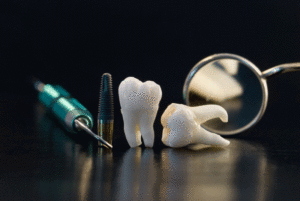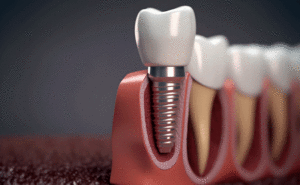Nature’s security blanket
The sucking reflex is a very strong, natural instinct. The urge to suck is usually so strong, in fact, that most healthy, full-term infants can successfully breastfeed within minutes of being born. As most parents know from their own observations, the need to suckle goes well beyond an infant’s need for nutrition. Sucking imparts a baby with a sense of wellbeing. It can help calm her when she feels colicky, can ease her through distressing teething pains, and can even soothe her gently to sleep at naptime.
Most babies will use their thumbs or a pacifier to meet their natural needs for comfort sucking at some time during the first few months of life. Some children will naturally lose interest in sucking as they develop other ways to self-comfort, while others may become quite attached to the habit and continue it for many years.
What the experts say
The advice offered to parents over the years concerning thumb sucking has varied from one extreme — always allow it — to the other — never allow it. More up-to-date advice now falls somewhere in the middle. According to the American Academy of Pediatric Dentists’ Fast Facts, thumb sucking is a normal childhood activity and not reason for concern unless it continues beyond the age of three or four. Thumb sucking after that age can, according to the academy, tip the front teeth outward, change tooth position and even alter jaw alignment.
How to help your child kick the thumb — or pacifier — habit
While most children naturally outgrow the thumb-sucking habit on their own, the Mayo Clinic suggests there may come a time when you need to help your child kick the habit. If your child is still sucking her thumb aggressively after the age of four, for example, is embarrassed by the habit, or is experiencing dental problems, it may be time to help her stop her sucking habit.
If your child uses a pacifier, your job may be a little easier. You can start by explaining to her that pacifiers are for babies, not “big girls,” and point out that you are proud that she is growing into a big girl. If she is distressed by the thought of giving up her pacifier, reassure her that she does not have to give it up all at once. Let her, quite literally, take “baby steps” as she learns to relinquish this important source of comfort.
The first step might be to say that the pacifier is for comfort at home, and not while at the park, for example, or while visiting Grandma. Later, you can expand the “no pacifier” rules to include meal times, for instance, or when the TV is on. Gradually whittle away the times and places where the pacifier is allowed. Let bedtime be Binkie’s last stand — it’s likely the most important. And be sure to move from step to step slowly and with lots of praise for the progress your “big girl” is making.
Encouraging a child to kick the thumb-sucking habit can be more difficult, for no other reason than that the thumb cannot be placed on a shelf for “later.” Praise, encouragement and even small rewards can go a long way toward helping your child stop sucking her thumb. Identifying her thumb-sucking triggers can also be useful. If she sucks her thumb when she’s over tired, for example, try to set naptime a little earlier in the day. Offer other comforts, as well, such as a back rub at bedtime or a cuddly teddy bear to snuggle. With gentle encouragement, her habit will quickly become a thing of the past.
Call the office of Dr. Caven or visit online at www.cavendental.com today to schedule an appointment for your child.


